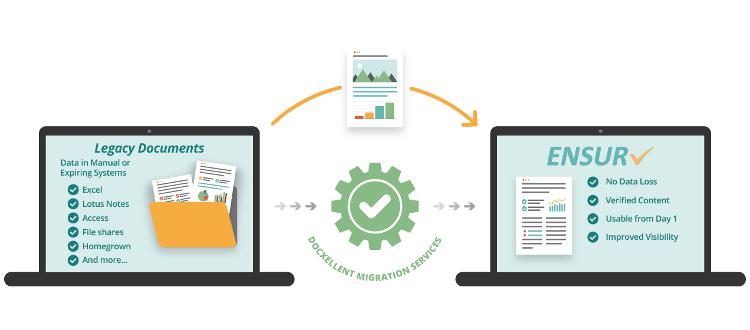
Data breaches are on the rise, and businesses of all sizes are at risk. Small and medium-sized businesses (SMBs), in particular, have become increasingly attractive targets for cybercriminals. This blog aims to inform SMBs about why they are vulnerable, the devastating consequences of data breaches, and strategies to protect themselves.
Understanding Data Breaches
A data breach is an incident where sensitive information (customer data, financial records, intellectual property, trade secrets, etc.) is exposed, stolen, or used without authorization. Small and medium-sized businesses (SMBs) face a variety of data breach threats. Phishing attacks are particularly insidious. They involve deceptive emails, links, or websites that trick employees into revealing sensitive information (like usernames/passwords) or downloading malware. Hackers also target software vulnerabilities, poorly secured networks, or even physical security lapses (like stolen laptops) to gain unauthorized access to systems and data.
Ransomware is another major threat, this malicious software encrypts a business's files or entire systems. The attackers demand a ransom payment, often in cryptocurrency, in exchange for the decryption key. They may even threaten to expose stolen data if you refuse. While less common, insider threats, like a disgruntled employee intentionally leaking data, can also be devastating.
The impact of a data breach on an SMB is severe. It can lead to direct financial losses from theft, ransom payments, downtime, investigations, and recovery efforts. The reputational damage can be long-lasting; customers no longer trust a business with their data. Additionally, SMBs could face legal fines and penalties under data protection regulations. In the worst-case scenario, the financial or reputational damage could cause a business to shut down entirely.
Important point: Even if no actual data is stolen, if unauthorized access occurred, this can be considered a breach with serious repercussions.
Why SMBs Are Targeted
Cybercriminals perceive SMBs as easy prey. Too often, SMBs lack the budget or dedicated IT expertise to build the kind of robust cyber defenses that larger companies have. This doesn't mean your business has no valuable data – that's a misconception. Even SMBs store sensitive client information like credit card numbers, addresses, and even medical records – data that can be sold for a profit on the dark web. Cybercriminals know they can often breach SMBs with less effort than a big corporation, leading to potentially lucrative paydays for them. It's a matter of maximizing returns with the path of least resistance.
Risks and Consequences for SMBs
A data breach can have severe consequences for an SMB, including:
Financial Losses:-
- Direct costs like ransom payments, legal fees, data recovery services, and the expense of notifying affected customers can pile up quickly.
- Indirect costs are also significant – downtime, lost productivity while focusing on the breach, and the expense of investigations add to the financial strain.
Damaged Reputation: When customers learn their data has been compromised, their trust evaporates. This can lead to lost business and difficulty attracting new clients. Rebuilding a damaged reputation takes time and significant resources.
Legal Trouble: Many countries have strict data protection regulations (such as GDPR). Failing to adequately safeguard data can result in hefty fines and penalties, further burdening a struggling business.
Strategies for Protection
SMBs don't have to be easy targets. Proactive steps can significantly reduce risk:
Cybersecurity Best Practices:
These fundamentals shouldn't be overlooked:
- Strong passwords & Multi-factor Authentication (MFA): Passwords should be complex (changed regularly) and NEVER reused across accounts. MFA (using your phone for a code, etc.) adds a crucial layer of protection.
- Software Updates: Updates often patch security holes. Enable auto-updates where possible, or have a schedule to check for them. This includes operating systems, browsers, and business-critical apps.
- Employee Training: Your team is your front-line defense. Regular training on recognizing phishing scams, safe internet practices, and what to do if something's suspicious is key.
Invest in a Document Management System (DMS)
A DMS offers specific security benefits:
- Controlled Access: Not everyone needs access to everything. A DMS lets you set permissions by user, department, etc., limiting the impact if one account is compromised.
- Encryption: Data should be encrypted both while stored and during transmission. This renders it useless if intercepted.
- Secure File Sharing: Eliminate risky methods like emailing attachments. A DMS lets you share files with clients securely.
- Audit Trails: Know who accessed what file, and when. Vital for investigating any suspicious activity.
Data Breach Response Plan
Hope for the best, prepare for the worst!
- Pre-defined Steps: No time for confusion when a breach is suspected. Outline exactly who does what (IT, legal, notifications).
- Designated Response Team: Assemble a cross-department team in advance, outlining clear roles in a crisis.
- Containment is Critical: The faster you isolate the breach, the less damage is done. Practice drills can help!
Important: Consider Cyber Liability Insurance. It can cover the costs of a breach, which for a small business, may be the difference between surviving the incident or not.
SMBs can't afford the "It won't happen to me" mentality. Prioritize data security, or risk severe repercussions. There are many resources available to help, even on a tight budget.
Consider taking a look at our ENSUR Lite guide for accessible DMS options tailored to smaller businesses. Let's make your business a harder target!





























